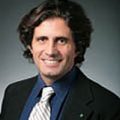
Michele Carbone, M.D.
Pathologist
Dr. Michele Carbone is the director of Thoracic Oncology at the University of Hawaii Cancer Center, focusing his research on the intricacies of malignant pleural mesothelioma.
About Dr. Michele Carbone
Carbone has traveled the world searching for clues that have led to a better understanding — and treatment advances — for mesothelioma cancer, a rare and aggressive with no definitive cure.
The International Mesothelioma Interest Group in 2018 awarded Carbone with the biennial Wagner Medal — its highest honor given — for his work in “discovering the role of genetics in the pathogenesis of mesothelioma.”
His research team at the University of Hawaii has developed preventative and therapeutic mesothelioma treatments for patients based on those genetics.
The research stemmed from his earlier trip to Cappadocia, a small village in Turkey where families were dying at an alarming rate from mesothelioma. It led to his hypothesis that genetics were playing a role.
When later studying families with multiple cases of mesothelioma in the United States, he identified the BAP1 gene as the culprit. When mutated, the gene increased susceptibility to asbestos that caused mesothelioma.
The mutation, which is found in 70 percent of mesothelioma cases, also makes a patient more resistant to chemotherapy.
“We found that cancer cells become much more responsive to chemotherapy when BAP1 levels are restored and calcium channels are fixed and stabilized,” he said. “The fixed channel should be able to prevent cancer in people who have inherited BAP1 mutation.”
Several cancer centers have now turned their focus on the BAP1 mutation, which has led to other discoveries in the field, including a diagnostic tool, and for identifying those at high risk for the disease.
“We now have an additional tool that we can use to increase the accuracy of a diagnosis,” Carbone said. “Today, there is a high rate of misdiagnosis. And there are many reasons for that. This tool can help get it right.”
Well-Respected Researcher
As a researcher, Carbone’s work has been well rewarded. He and his team at the University of Hawaii Cancer Center have received more than half of all federal funding for mesothelioma research.
The National Cancer Institute sends 90 percent of its mesothelioma-specific funding to his laboratory, according to the Hawaii Cancer Center.
The U.S. Department of Defense awarded Carbone’s team with a $1.9 million grant to study HMGB1, a genetic biomarker that also may predict a higher risk for developing mesothelioma.
Carbone also is a professor in the Department of Pathology at the University of Hawaii School of Medicine. He has received many honors for his work over the past two decades.
He was on the board of directors for the American Cancer Society. He was given the prestigious INNOVATOR Award for international collaboration by the Landon Foundation-American Association for Cancer Research.
Carbone was born in Italy. He graduated from the Medical School of Rome. He is board certified in anatomic pathology in Italy and the United States.

